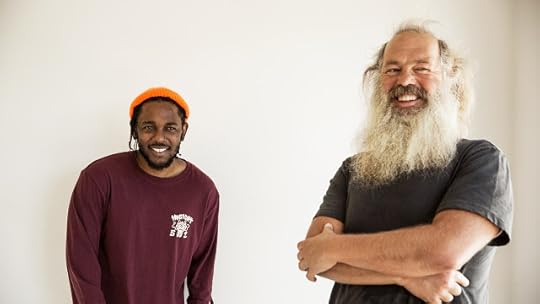Mark Anthony Neal's Blog, page 568
October 24, 2016
Professional Black Girl - Episode 7: Joan Morgan
Published on October 24, 2016 03:48
Kendrick Lamar Meets Rick Rubin and They Have an Epic Conversation
Published on October 24, 2016 03:40
‘Loving’: Beautiful Subtlety Defines Civil Rights Interracial Love Story by Stephane Dunn
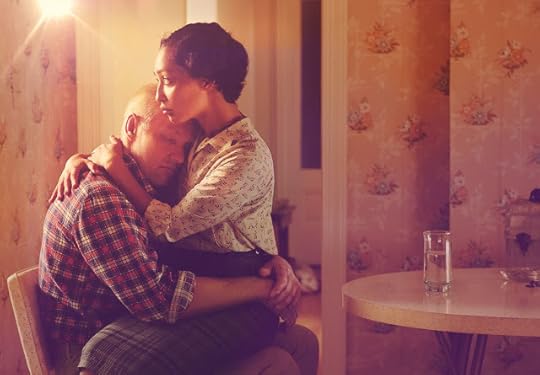 ‘Loving’: Beautiful Subtlety Defines Civil Rights Interracial Love Storyby Stephane Dunn | @DrStephaneDunn | NewBlackMan (in Exile)
‘Loving’: Beautiful Subtlety Defines Civil Rights Interracial Love Storyby Stephane Dunn | @DrStephaneDunn | NewBlackMan (in Exile)2014’s Selma took on one of the already more well-known histories of the Civil Rights Movement, but the new motion picture Loving, highlights something very important. For all of the famous moments, figures, and legal cases that have come to define the public representation of the movement historically, there are many more that are as yet unsung.
Loving dramatizes the story of Richard and Mildred Loving, the interracial couple that challenged the state of Virginia’s miscegenation law. Their story received good documentary treatment in 2012 with director Nancy Buirski– who encouraged the motion picture idea. Loving (2016) will surely elevate the fame of the Loving’s historic stand against systemic white supremacy. Directed with thoughtful restraint by Jeff Nichols (Mud) and starring Ruth Negga (Preacher) as Mildred and Joel Edgerton as Richard, Loving focuses on the intimate lives of the resilient and courageous ordinary people who had to resist and survive the extraordinary circumstances unjustly thrust upon them.
Loving vs. Virginia was a groundbreaking case that resulted in state miscegenation laws being struck down after the case was won in ‘67. Loving does not privilege the execution of the Supreme Court case by the two white Jewish lawyers who argued the Lovings’ case, but instead chooses to focus on the love between the true main characters Mildred and Richard and how exile from the community and land that define who they are impacts their lives. Though a couple of well-placed glimpses of the courtroom arguments would have perhaps given the narrative a bit more needed dramatic heft, Loving wisely defies the irritating habit of making the white agents crusading on behalf of black victims the focal point as we have seen in civil and human rights themed films. Films like Amistad, for example, situate white noble characters as heroic figures doing the ‘real’ work of fighting for freedom on behalf of the oppressed black characters. Loving focuses on Richard and Mildred, loving each other and wanting to building a home together amid the extended families in the close quartered, cross racial Virginia community that they’ve been born and bred into.
After meeting in 1958, Mildred and Richard marry in Washington DC. Shortly after, they are arrested in their home state of Virginia then exiled from the state for twenty-five years upon threat of imprisonment in the state penitentiary. As their family grows to include two more children after risking imprisonment for having their first child in Virginia, they struggle in the city, severed from their distinctively racially diverse Virginia community and the country; this becomes the catalyst for the evolution of Mildred from a shy, naïve, young country girl, into quiet yet confident, sure minded woman, wife and mother who decides that the freedom to return home with her husband and children is worth the risk of arrest and a challenge to the state of Virginia. Her letter to Robert Kennedy in 1964 conveying their plight is the truest act of heroic courage.
Ruth Negga and Joel Edgerton are together a revelation as the Lovings and individually in their respective characters. Negga, perfectly cast as Mildred, studied the documentary and photos of Mildred over and over, and her respect for the quiet elegance and integrity of Mildred and the indignity she defied shines through her performance of Mildred as a soft spoken, earnest country girl at heart with keen insight, and in Negga’s words, “a sliver of steel” running through her. Joel Edgerton matches the subtlety of his co-star and the carefully unrushed pace of the film, conveying Richard Loving as he comes across in surviving footage and the documentary – as a hardworking brick layer – car fixer and earnest man who loves his wife. He is bewildered by the larger external society that cannot fathom that love.
Edgerton’s face and gentle gestures toward his wife convey a complexity of emotions that words would not and blessedly don’t attempt to. The camera lingers in the gestures, the pauses, and silences, and the shifting country and urban landscapes. The cast of Loving rounds out with several co-stars that add dynamic energy through humor and passion into the understated vibe Nichols establishes, including Alano Miller (WGN’s Underground), the up and coming Terri Abney who plays Mildred’s beloved sister Garnet Jeter, and Nick Kroll as the Lovings’ American Civil Liberties Union lawyer, Bernie Cohen.
The real life Mildred and Richard came from an interestingly cross-racial community of people with Native American, Black, and Caucasian ancestry living and working the land in close quarters, but this is treated minimally in the film, so we don’t get a better sense of the ethnographic roots of Mildred and Richard’s coming together. A single statement of indictment by a rather prototypical southern white sheriff citing the ‘mixed up’ country folk Mildred and Richard come from serves as a nod to the mixed race community. And too, Loving missteps in balancing the lovely understated approach to the storytelling with more dramatic intensity that varies the pace.
True, the Lovings were ordinary folk loving and living their normal, but the story of fighting for the freedom to continue doing so is bigger than the film tag, ‘love is love.' The socio-political impact of their years long battle against the state of Virginia was not simple or ordinary. Loving vs. Virginia was a dramatic historical entry in the civil rights struggle. This is not to say that the narrative needed dramatic reenactments of the real white supremacist terroristic activity that is usually depicted in Civil Rights set dramas -- cross burnings, lynchings, crowds jeering racial epitaphs, etc.
However, Loving does indict a violence -- the violence that systemic white supremacy enacted on families from slavery through the early twentieth century as family members fled the south post-slavery seeking escape from Jim Crow in all its ugly manifestations or were exiled from the south due to the same, tearing mothers, fathers, sisters, brothers and grandparents apart from each other, their familiar country, and communities. It is a lovely irony that Mildred and Richard’s last name happened to be Loving for theirs is a story of love beyond the romantic which struck at the core of America’s weird, contradictory, and violently traumatic miscegenation hysteria exemplified in its constitutional one drop blood rule.
+++
Stephane Dunn is a writer and professor and the director of the Morehouse College Cinema, Television, & Emerging Media Studies Program (CTEMS). Her publications include the 2008 book Baad Bitches & Sassy Supermamas: Black Power Action Films (U of Illinois) and a number of articles in mediums such as Ebony.com, The Atlantic, The Root.com, Bright Lights Film journal, and others. Follow her on Twitter at twitter @DrStephaneDunn and www.stephanedunn.com.
Published on October 24, 2016 03:17
October 21, 2016
#BlackFolkDont: Buy Homes
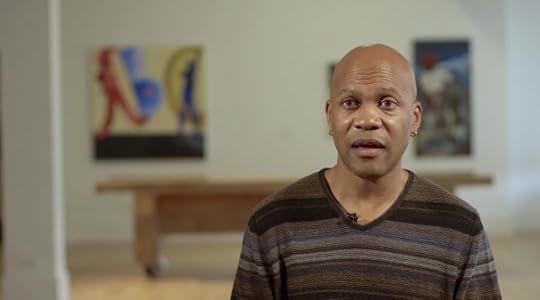 'What's the relationship between Black folk and real estate? Find out in #BlackFolkDont: Buy Homes.' -- +NBPC
'What's the relationship between Black folk and real estate? Find out in #BlackFolkDont: Buy Homes.' -- +NBPC
Published on October 21, 2016 09:01
Mobb Deep's Prodigy Talks Sickle Cell Disease + Eating to Live + The Infamous Prison Cookbook
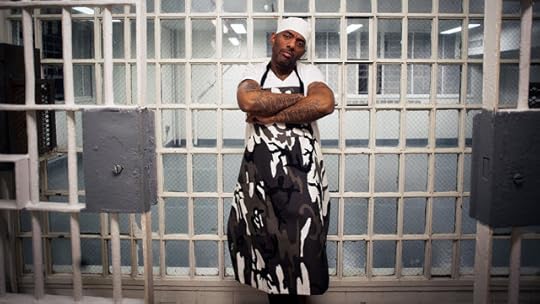 'Albert "Prodigy" Johnson of the legendary Hip Hop duo Mobb Deep served three and a half years in prison, and during that time his focus was on his health. Being afflicted with sickle cell disease, he really had to struggle to keep a healthy diet behind bars. His prison experiences as well as some nifty MacGyver recipes are now outlined in his new book
Commissary Kitchen: My Infamous Prison Cookbook
. Jill Hopkins spoke with Prodigy about the book and its stripped down recipes.' --
Vocalo
'Albert "Prodigy" Johnson of the legendary Hip Hop duo Mobb Deep served three and a half years in prison, and during that time his focus was on his health. Being afflicted with sickle cell disease, he really had to struggle to keep a healthy diet behind bars. His prison experiences as well as some nifty MacGyver recipes are now outlined in his new book
Commissary Kitchen: My Infamous Prison Cookbook
. Jill Hopkins spoke with Prodigy about the book and its stripped down recipes.' --
Vocalo
Published on October 21, 2016 08:39
The Code of Silence + Narrative Control + the Chicago Police Department
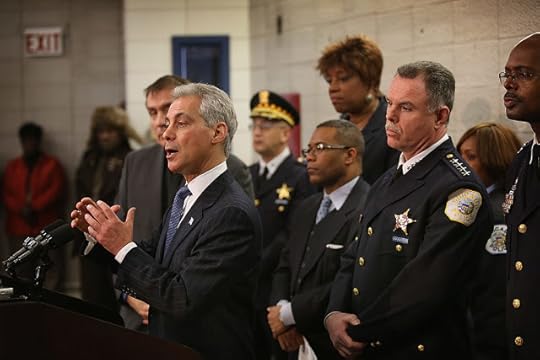 'Journalist Jamie Kalven examines the mechanisms of silence within the Chicago Police Department, and explains how an investigation into a drug protection racket within the CPD reveals massive flaws in the structures of law enforcement and the news media, as well as class relations across American society. Kalven wrote the four-part series "Code of Silence" for
The Intercept
.' -- This Is Hell! Radio
'Journalist Jamie Kalven examines the mechanisms of silence within the Chicago Police Department, and explains how an investigation into a drug protection racket within the CPD reveals massive flaws in the structures of law enforcement and the news media, as well as class relations across American society. Kalven wrote the four-part series "Code of Silence" for
The Intercept
.' -- This Is Hell! Radio
Published on October 21, 2016 06:43
#TheSpin: Sofia Quintero + Shani Jamila Talk Making 'Consent' Sexy
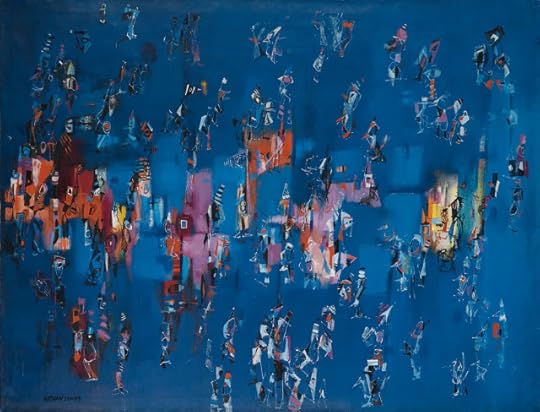 Untitled, oil on linen canvas, circa 1957As part of
#theCONSENTconvo
, a collaboration with Ebony.com, Esther Armah is joined by Sofia Quintero and Shani Jamila in a conversation about making consent "sexy" and the healing of Black Women's emotional health. -- #TheSpin
Untitled, oil on linen canvas, circa 1957As part of
#theCONSENTconvo
, a collaboration with Ebony.com, Esther Armah is joined by Sofia Quintero and Shani Jamila in a conversation about making consent "sexy" and the healing of Black Women's emotional health. -- #TheSpin
Published on October 21, 2016 06:35
October 20, 2016
MartyrLoserKing: Saul Williams & Mark Anthony Neal in Conversation
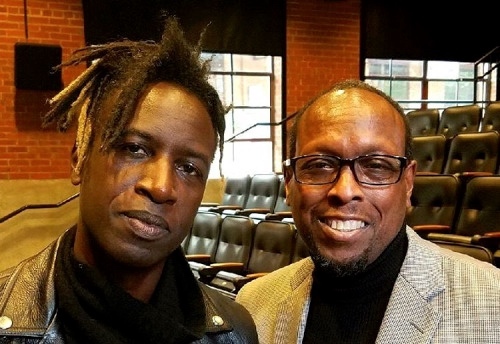 'Legendary spoken-word artist Saul Williams and Duke Professor Mark Anthony Neal discuss how Saul extends his global and artistic activism. A part of the Talking Music: Conversations with Scholars, Writers, Archivists, and Artists series, co-sponsored by Duke Performances and the Forum for Scholars and Publics. This installment in the series is also co-sponsored by the Center for Arts, Digital Culture & Entrepreneurship (CADCE), and The Power Plant Gallery. Presented as part of Duke Performances’ Hip-Hop Initiative, made possible, in part, with support from the Mary Duke Biddle Foundation.' -- +Scholars and Publics
'Legendary spoken-word artist Saul Williams and Duke Professor Mark Anthony Neal discuss how Saul extends his global and artistic activism. A part of the Talking Music: Conversations with Scholars, Writers, Archivists, and Artists series, co-sponsored by Duke Performances and the Forum for Scholars and Publics. This installment in the series is also co-sponsored by the Center for Arts, Digital Culture & Entrepreneurship (CADCE), and The Power Plant Gallery. Presented as part of Duke Performances’ Hip-Hop Initiative, made possible, in part, with support from the Mary Duke Biddle Foundation.' -- +Scholars and Publics
Published on October 20, 2016 13:25
"Sirens" (City Cops Acoustic Version) -- FM Supreme at the Kennedy Center
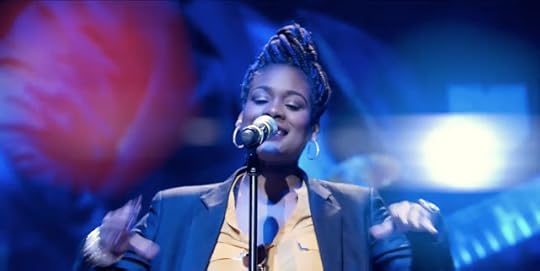 'Chicago's FM Supreme performs ab acoustic version of "Sirens" at The John F. Kennedy Center for Performing Arts in Washington DC as part of the Black Male Reimagined III gathering.'
'Chicago's FM Supreme performs ab acoustic version of "Sirens" at The John F. Kennedy Center for Performing Arts in Washington DC as part of the Black Male Reimagined III gathering.'
Published on October 20, 2016 13:09
#BackChannel -- Seats at The Table: Nat Turner + '13th' + Luke Cage + Solange
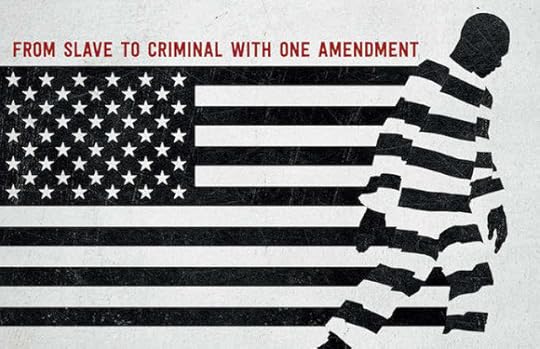 The highly-anticipated film The Birth of a Nation tells the story of a slave rebellion led by Nat Turner in Southampton County, Virginia in 1831. The movie received critical acclaim at the Sundance Film Festival earlier this year, but support for the movie has since waned as details about the creator’s controversial past resurfaced.
The highly-anticipated film The Birth of a Nation tells the story of a slave rebellion led by Nat Turner in Southampton County, Virginia in 1831. The movie received critical acclaim at the Sundance Film Festival earlier this year, but support for the movie has since waned as details about the creator’s controversial past resurfaced.Meanwhile, streaming services, like Netflix, continue to provide a platform for content portraying diverse representations of black life. The new documentary "13th" looks at the birth of mass incarceration in the U.S. and the drama Luke Cage depicts a bulletproof black superhero. This as Solange Knowles' A Seat at the Table offers a refined collection of sounds geared to this historical moment.
WUNC Host Frank Stasio talks with Natalie Bullock Brown, professor of film and broadcast media at St. Augustine's University in Raleigh, and Mark Anthony Neal, professor of African & African American studies at Duke University in Durham on this edition of #BackChannel.
Published on October 20, 2016 03:47
Mark Anthony Neal's Blog
- Mark Anthony Neal's profile
- 30 followers
Mark Anthony Neal isn't a Goodreads Author
(yet),
but they
do have a blog,
so here are some recent posts imported from
their feed.



